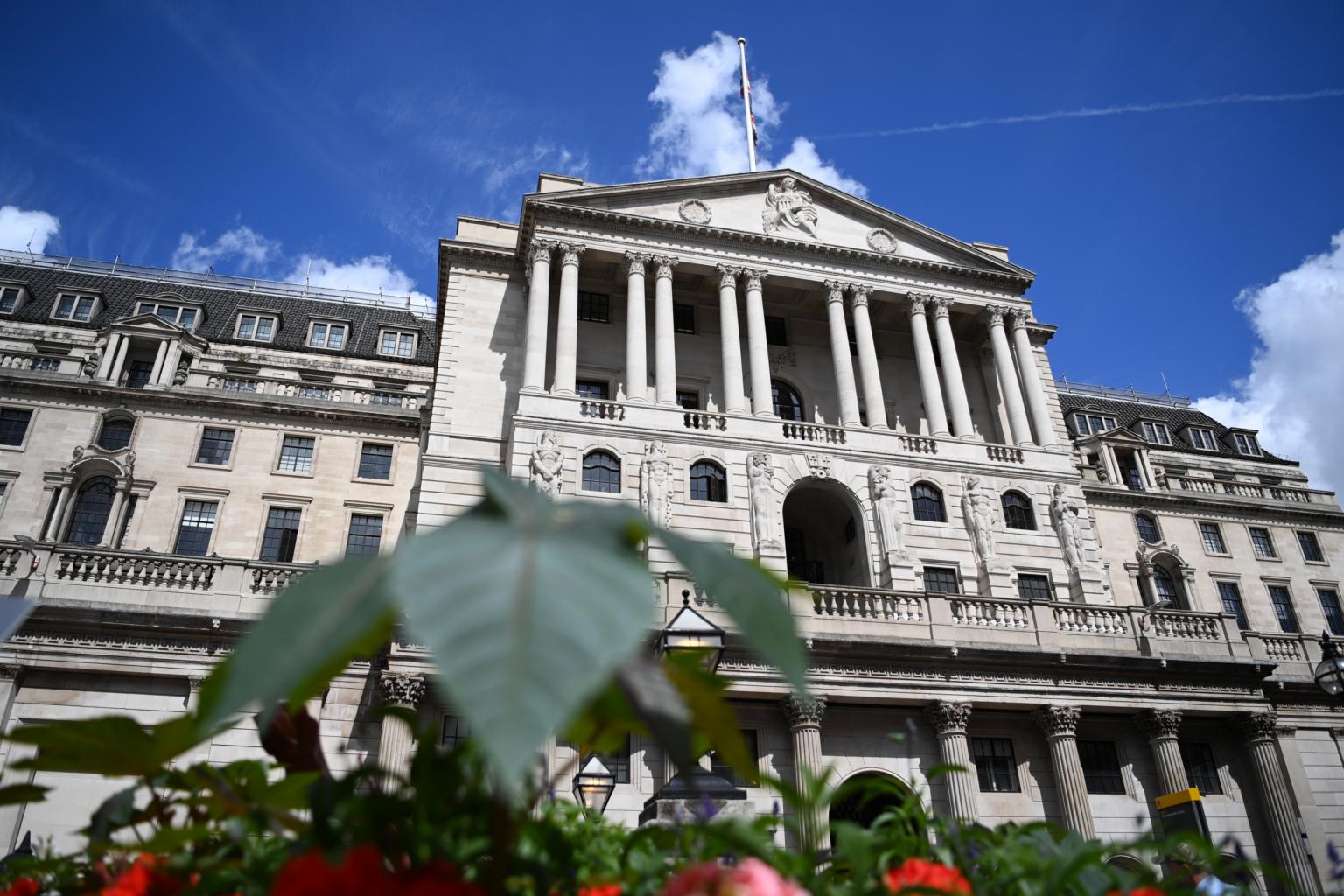Bank of England raises interest rates by the most in 27 years as UK grapples with extended recession
Sign up now: Get ST's newsletters delivered to your inbox

The Bank of England also boosted its forecast for the peak of inflation to 13.3 per cent in October.
PHOTO: EPA-EFE
Follow topic:
LONDON (BLOOMBERG) - The Bank of England (BOE) unleashed its biggest interest rate hike in 27 years as it warned Britain is heading for more than a year of recession under the weight of soaring inflation.
The half-point increase to 1.75 per cent was backed by eight of the bank's nine policymakers, who also kept up a pledge to act forcefully again in the future if needed, potentially putting similar hikes on the table for coming meetings.
The move came as officials predicted recession will begin in the fourth quarter, and last all the way through next year. That is the longest slump since the financial crisis. Officials expect the economy to shrink by around 2.1 per cent in total.
The BOE also boosted its forecast for the peak of inflation to 13.3 per cent in October amid a surge in gas prices, and warned that price gains will remain elevated throughout next year. That will sharpen a cost of living crisis that will see real disposable incomes fall more than at any time in around 60 years.
Even after billions of pounds of government support for struggling households, families are set to be around 5 per cent worse off by the end of next year, with incomes falling both this year and next.
Set against the gloomy outlook, the half-point hike, unprecedented since the BOE gained independence in 1997, is a sign officials are calling time on the era of cheap money and scrambling to keep pace with a wave of global tightening from its international peers.
The forecasts, based on average energy bills increasing by 75 per cent to around £3,500 (S$5,840) in October, also highlight the scale of the challenge awaiting the victor of the race to replace Mr Boris Johnson as British prime minister.
Inflationary pressures have "intensified significantly", the BOE said. "The latest rise in gas prices has led to another significant deterioration in the outlook for activity in the United Kingdom."
Alongside the decision, the BOE also laid out its plans for reducing the mammoth government bond holdings it amassed during the crisis.
Active sales, the first carried out by a major central bank, are likely to start after a confirmatory vote in September and will be in the region of around £10 billion a quarter.
Including redemptions, the BOE sees its stock of gilts declining around £80 billion in the first year of the program.
Officials said there would be a "high bar" to altering the plan.
Sales of the far smaller holding of corporate bonds will begin in the week starting Sept 19, the BOE said.
Taken together, the moves represent a significant step up in the BOE's battle against inflation.
While the British central bank was the first major central bank to hike rates after the Covid-19 pandemic, and has moved at every meeting since December last year, it had thus far stuck to smaller, more usual moves.
That left it risk of falling behind the curve, with about 70 other central banks having moved by a half-point or more this year.
The United States Federal Reserve raised interest rates by 75 basis points at its last two meetings, while even the European Central Bank kicked off its cycle last month with a half-point rise.
The BOE forecasts, based on a market path for interest rates that peaks at 3 per cent next year, show the economy contracting about 1.25 per cent next year and a further 0.25 per cent the following year.
Unemployment, meanwhile, will climb to 6.3 per cent by 2025.
Inflation will peak above 13 per cent later this year, and still be at 9.5 per cent in the third quarter of next year. After that it will fall rapidly towards the 2 per cent target as the recession saps demand.

